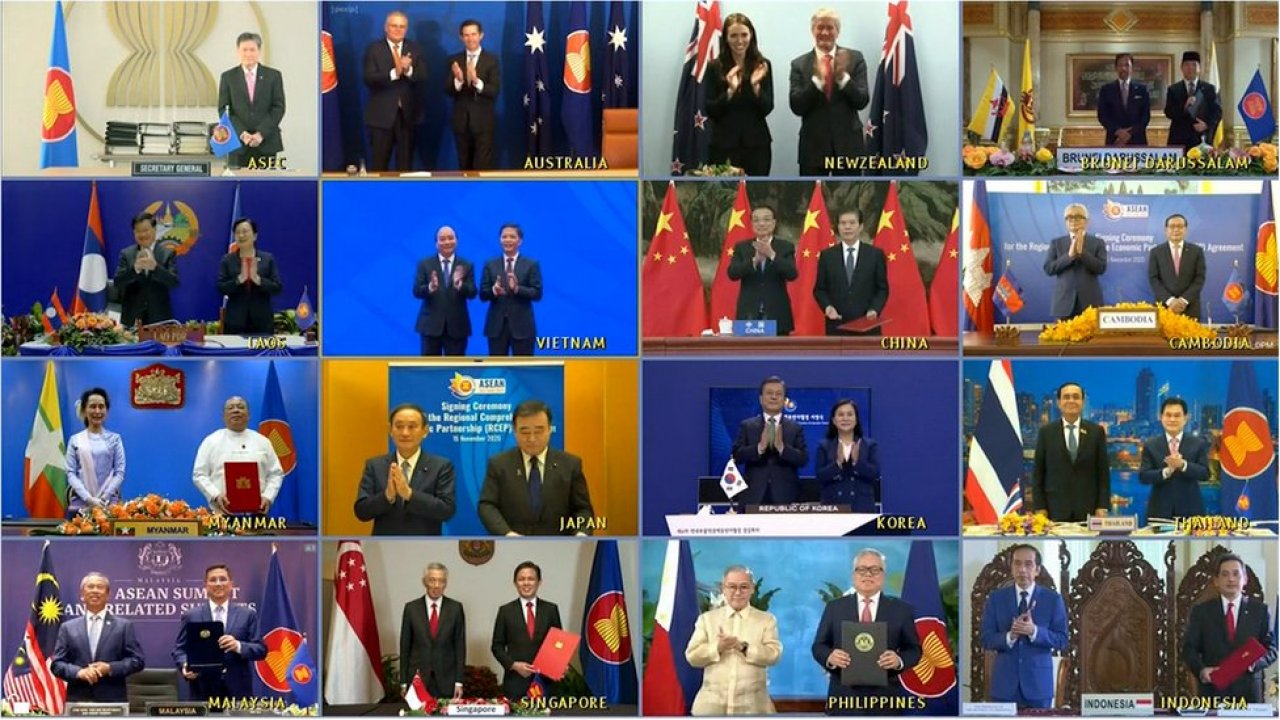
Fifteen Asia-Pacific countries on Sunday signed the Regional Comprehensive Economic Partnership (RCEP) agreement, the world's largest free-trade deal, that is accounting for 30% of the world's economy and population.
Proposed for the first time in 2012, the agreement was signed on Sunday 15th, on the sidelines of a meeting of the Association of Southeast Asian Nations (Asean), hosted by Vietnam.
In the online ceremony, leaders of RCEP countries took turns standing behind their trade ministers who, one by one, signed copies of the agreement, which they then showed triumphantly to the cameras with the hope that the deal will help to stimulate recovery from the coronavirus pandemic.
The US is absent from RCEP and the 11-nation Trans-Pacific Partnership (TPP) deal that US pulled out in 2016. This leaves the world's biggest economy out of two trade groups that span the fastest-growing region on earth.
India should also have been part of the agreement, but in 2019 it withdrew from negotiations for fear of suffering too much the trade deficit to China.
According to estimates made by some economists, the trade agreement will have the potential to add 186 billion USD to the global economy and will affect the GDP of its members by 0.2%.
In total, the RCEP is made up of 10 Southeast Asian countries, as well as South Korea, China, Japan, Australia and New Zealand.
The agreement is expected to eliminate a range of tariffs on imports within 20 years. It also includes provisions on intellectual property, telecommunications, financial services, e-commerce and professional services.
But it's possible the new "rules of origin" - which officially define where a product comes from - will have the biggest impact.
Under RCEP, parts from any member nation would be treated equally, which might give companies in RCEP countries an incentive to look within the trade region for suppliers.
Unlike the European Union, it does not establish unified standards on labour and the environment or commit countries to open services and other vulnerable areas of their economies.
But it does set rules for trade that will facilitate investment and other business within the region.
RCEP, therefore, is a much-needed platform for the Indo-Pacific's post-COVID recovery.